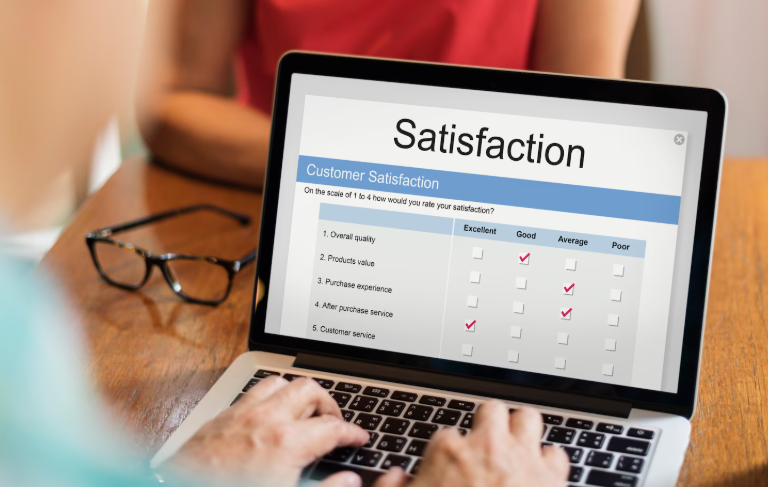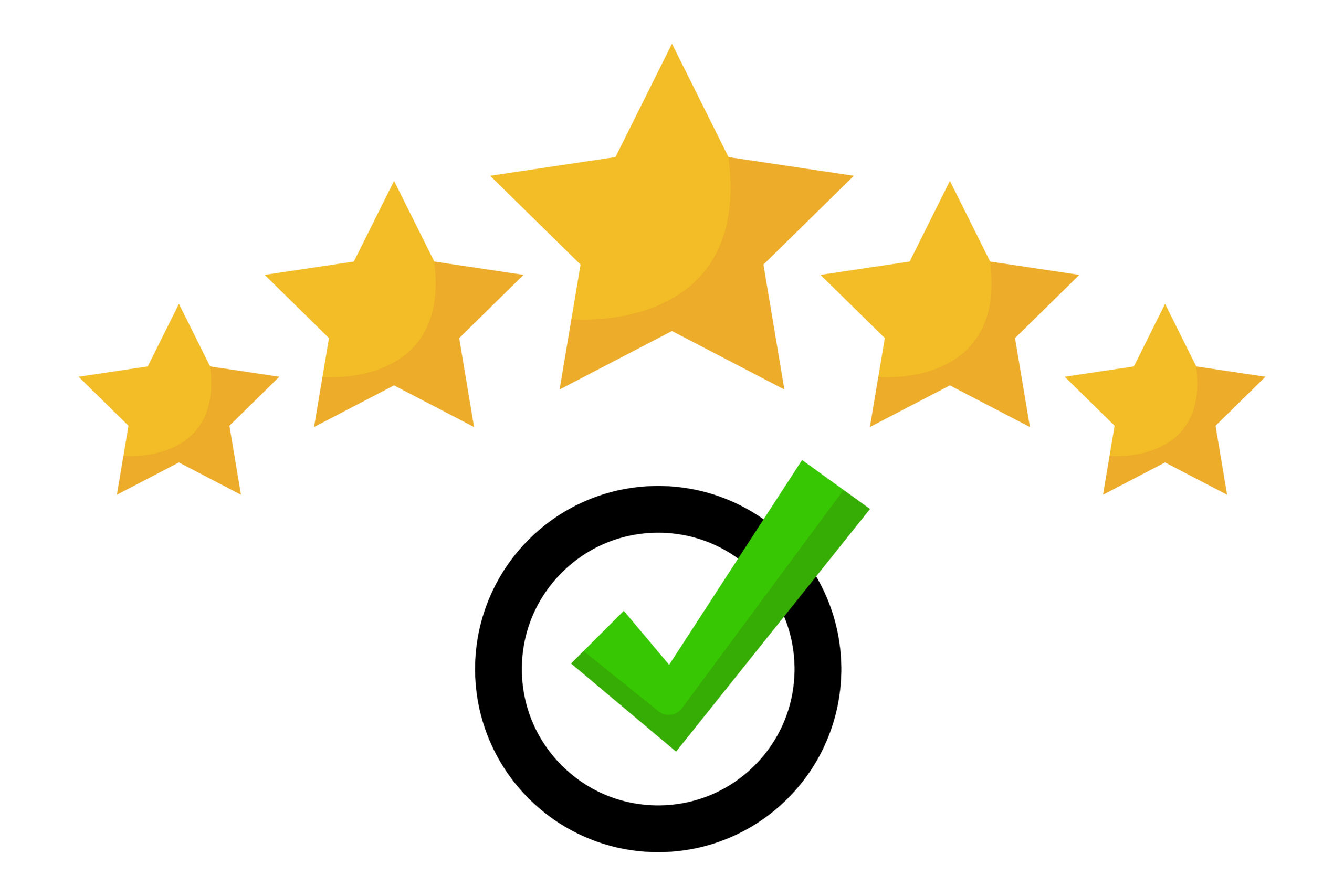When someone searches your brand name, they’re not just “googling”—they’re performing a trust check. A single negative article, a misleading review snippet, a forum thread, or an outdated complaint page can dominate the first page and shape decisions before your team ever gets a chance to speak. That’s why SERP Reputation Repair is no longer a niche tactic for crisis moments. It’s a core business function for brands that rely on search visibility, referrals, partnerships, hiring, and investor confidence. The search results page is often your first meeting with a customer, and it’s happening whether you’re ready or not.
This blog gives you a practical, credibility-first framework to repair damaged search results without risky shortcuts. You’ll learn how to audit what’s ranking, decide what can be removed vs. what must be suppressed, build authority assets that push harmful links down, and maintain long-term protection through monitoring and response workflows. AiPlex ORM describes this work as “search perception management,” including SERP audits, keyword mapping, and strategic content promotion to improve brand visibility. If you want hands-on support across search, reviews, and response systems, start here and explore search perception management here.
Before you start: how SERP Reputation Repair actually works
SERP repair is not a single action—it’s a coordinated set of strategies that influence what ranks for branded queries and reputation-related keywords. In simple terms, you’re trying to increase the visibility of accurate, authoritative, and brand-aligned results while reducing the visibility of harmful, misleading, or outdated pages. Sometimes that happens through removals (policy violations, legal takedowns, court orders). Other times it happens through ethical suppression, where stronger positive or neutral assets outrank negative listings. AiPlex ORM’s materials explicitly reference SERP audits, strategy design, keyword optimization, and positive content creation as steps in search perception management.
SERP Reputation Repair to Restore Brand Trust
SERP reputation repair helps brands reduce negative search results, rebuild visibility, and restore trust by reshaping how brands appear.
It also helps to set expectations early. SERP movement is influenced by competition, authority, and content strength, so timelines vary. AiPlex ORM notes that “most visible improvements begin within 45–90 days,” depending on competition and severity. That range is a helpful planning baseline—but the bigger takeaway is that sustainable SERP repair is built like a system: audit → prioritize → remove where possible → suppress where needed → reinforce trust → monitor continuously. If you treat it as a one-time cleanup, the same issues tend to return.
How search results influence trust faster than your website can
Most users don’t land on your site first. They land on the search results page, skim titles and snippets, and form an opinion in seconds. If the SERP shows negative headlines, complaint pages, or sensational posts, even a well-designed website won’t fully counter the first impression. This is why SERP Reputation Repair is fundamentally about risk reduction: it prevents unverified or context-less content from becoming the “default narrative” when someone researches you. It’s also why branded search is a business KPI—because your reputation is being evaluated continuously by people you’ll never meet.
Trust is shaped by patterns, not a single result. If search shows consistent brand assets—official pages, credible media mentions, strong profiles, and up-to-date review surfaces—prospects feel safe. If search shows fragmented or hostile content, prospects become cautious and delay decisions, which affects conversions, hiring, partnerships, and even customer support load. AiPlex ORM’s FAQ notes that SERP repair supports “sales and conversions” by improving what customers see when evaluating a brand. That’s the real objective: reducing friction and doubt during decision-making.
What counts as “negative” in SERP repair
Negative SERP results aren’t always defamatory. Many are simply misleading, outdated, or context-free—like an old complaint thread that no longer reflects your business, or an irrelevant listing that ranks because your branded keywords appear on the page. Sometimes the damage is subtle: “scam” autocomplete suggestions, review snippets highlighting only worst cases, or aggregator pages that collect complaints across industries. A proper SERP Reputation Repair strategy starts by defining what “harm” means for your specific business: lost leads, fewer inbound partnerships, rising customer anxiety, or investor hesitation.
You should also distinguish between content that’s removable and content that’s suppressible. Removable content usually involves policy violations, IP infringement, privacy issues, impersonation, or legal grounds. Suppressible content is content that may be legitimate but unhelpful—like an opinion post or a negative news item that’s not false but dominates branded queries. AiPlex ORM discusses this split clearly: policy-based review removals where violations exist, and content suppression through authority building when removal isn’t possible. Getting this classification right prevents wasted effort and sets a smarter path forward.
Run a SERP audit that captures what actually matters
A SERP audit is not just a screenshot of page one. It’s a structured assessment of branded queries, executive/founder queries (if relevant), product queries, and “reputation modifier” queries like “brand + reviews,” “brand + complaint,” “brand + scam,” or “brand + refund.” The audit should capture rankings, URLs, page types, sentiment, snippet language, and whether results appear in special features like Top Stories, People Also Ask, or local packs. AiPlex ORM notes that its SERP process includes analyzing current search results, identifying negative or misleading listings, and mapping keywords for SERP repair.
This audit becomes your control panel. Without it, teams chase whatever feels loudest. With it, you can prioritize by business impact: which queries prospects use before buying, which results decision-makers see first, and which pages are easiest to displace. A strong audit also identifies “quick wins” such as broken pages, outdated listings, incomplete profiles, or missing brand assets that could rank with basic optimization. In other words, the audit doesn’t just show the damage—it reveals the fastest paths to visible improvement.
Prioritize targets using impact, feasibility, and volatility
Not every negative result is worth the same effort. Prioritize using three filters. First, impact: does the result rank for high-intent queries that influence buying decisions? Second, feasibility: is it removable, suppressible, or neither? Third, volatility: how often do rankings change for that query and result type? News results and trending social pages can be volatile; authoritative articles and long-standing forums can be sticky. This prioritization helps your SERP Reputation Repair program focus on outcomes instead of endless firefighting.
Feasibility is where many brands get stuck. They pursue removals for content that isn’t removable, or they ignore suppression for content that will never be removed. A smarter plan runs parallel tracks: removal attempts where justified, and suppression/authority building as the primary momentum engine. AiPlex ORM’s approach reflects this reality by including removals and takedowns alongside search perception management and PR/brand building in its service ecosystem. The key is to keep the program moving even when a specific removal outcome is uncertain.
Define success metrics beyond “page one looks better”
The best metric is not “we removed one link.” It’s whether perception and performance improved. Track branded sentiment in top results, the share of page one controlled by owned or favorable assets, click-through changes, lead quality, and sales friction signals (like fewer “is this legit?” objections). Also track query-by-query movement, because a brand can look clean for the company name but still be damaged for “brand + reviews” or “brand + scam.” AiPlex ORM positions SERP repair as part of improving trust and conversions, which implies business outcomes should be part of measurement—not vanity movement.
Finally, define a maintenance standard. SERP repair isn’t done when page one looks good once—it’s done when the system consistently keeps it good. That means monitoring new negative content, catching spikes early, and continuing to publish authoritative assets that protect your rankings. AiPlex ORM emphasizes monitoring and continuous improvement in its ORM frameworks, which aligns with treating reputation as an ongoing operational function.
Step 1: Triage the SERP and contain reputational risk
The first phase of SERP Reputation Repair is triage. You’re identifying what’s hurting you most and stabilizing the narrative so it stops getting worse. This is especially important when negative content is fresh, viral, or being amplified through social channels. In triage, you act quickly: update key brand assets, improve visible profiles, respond appropriately on major review surfaces, and prepare a clear internal messaging stance so your team doesn’t contradict itself publicly. You’re not trying to “win” the internet in a week—you’re trying to stop the damage from spreading while you execute the deeper repair plan.
Triage also includes aligning stakeholders. Sales, support, leadership, and marketing need a shared set of messages and a shared escalation path for high-risk claims. Otherwise, your brand may look inconsistent: one team denies an issue while another apologizes, which can amplify distrust. AiPlex ORM’s response management highlights crisis response protocols, escalation workflows, and tone consistency to minimize reputational damage. That kind of structure is exactly what you need in the triage phase—because speed without consistency creates more harm.
Stabilize your controlled assets first
Your fastest wins typically come from the assets you control: your website, social profiles, Google Business Profiles, founder pages, and major directory listings. Update bios, brand descriptions, service pages, and About pages with clear, consistent positioning. Add fresh content that addresses common misconceptions and highlights credible proof—case studies, transparent policies, and customer success stories. Controlled assets often rank more easily for branded queries, and improving them quickly can reshape page one while longer-term suppression work ramps up.
This is also where you remove friction. If your site is missing key trust elements—clear contact details, policy clarity, real team information, verified business identity signals—prospects will lean more heavily on third-party negativity. Strengthening owned assets gives Google more authoritative brand material to rank. AiPlex ORM describes “reputation asset optimization” as a foundational repair method, improving owned digital assets to act as trust anchors in SERPs. Think of this as building a strong “official layer” that makes misleading narratives less persuasive.
Coordinate review and response signals during triage
Even though SERP repair is search-focused, reviews and responses influence perception and sometimes SERP features. If branded queries show review snippets or “best of” panels, your response behavior becomes part of what prospects evaluate. During triage, respond to high-impact negative reviews calmly, acknowledge concerns, and offer resolution steps. AiPlex ORM’s response management notes that prompt, thoughtful replies prevent escalation and reinforce trust through consistent communication. This is valuable not just for the reviewer, but for everyone reading.
The goal is not to argue; it’s to demonstrate accountability. Prospects often forgive mistakes when they see responsible handling. If you’re dealing with review attacks or policy-violating content, document and report it—while continuing to build authentic positive feedback through ethical review management. AiPlex ORM’s review management emphasizes monitoring and responding in real time across major platforms, plus analytics and improvement campaigns. When your reviews become more credible and current, SERP trust improves because the overall story feels representative.
Step 2: Use removals and takedowns where they’re justified
Removals are powerful because they eliminate the problem instead of competing with it. But removal is not a wish—it’s a rules-based process. SERP Reputation Repair uses removal pathways when content violates platform policies, infringes rights, reveals private information, impersonates your brand, or crosses legal lines. The key is to choose the correct mechanism: platform reporting, DMCA requests, legal notices, or court-backed enforcement. AiPlex ORM frames its offering as “full-stack ORM,” including removals and takedowns alongside other perception management methods.
You should also keep expectations realistic. Some removals happen quickly; others don’t happen at all. That’s why removals must run in parallel with suppression. If you wait for a perfect removal outcome before building authority, you lose time and allow negative narratives to settle in. A mature program treats removals as a high-impact support pillar—while authority building remains the core engine that steadily improves what ranks.
Policy-based removal requests: precise, documented, and consistent
Policy-based removal is often the most straightforward when content clearly violates a platform’s rules—spam, harassment, hate, irrelevant content, personal data exposure, impersonation, or conflict of interest. Success depends on precision: you must map the violation to the platform’s policy category and provide evidence where possible. AiPlex ORM notes that policy-based removal requests require accurate documentation and structured reporting to increase success rates. This is why ad-hoc “report it as abusive” rarely works; it lacks specificity.
Create an audit trail: screenshots, URLs, timestamps, and submission outcomes. This helps you escalate appropriately and avoid repeated ineffective attempts. Meanwhile, keep responding and building positive assets so you’re not stalled. The win here is twofold: if removals succeed, you reduce the negative footprint; if they don’t, you still gain momentum through suppression and trust building. That balance is what keeps SERP Reputation Repair moving even under uncertainty.
Legal and court-backed takedowns: when the situation demands enforcement
Some content goes beyond policy violations and enters legal territory—defamation, trademark abuse, serious misinformation, impersonation, or unlawful use of assets. In those cases, legal notices, court order procurement, and enforcement can become part of the strategy, depending on jurisdiction and evidence. AiPlex ORM lists court order procurement & enforcement and removals/takedowns as part of its service categories, reflecting that enforcement pathways may be needed for high-severity reputation threats.
These routes require careful handling because they have legal implications and can trigger “Streisand effect” risk if executed publicly without planning. The best approach is targeted, evidence-driven, and paired with suppression so that even while legal processes unfold, the SERP improves through stronger positive assets. In other words, enforcement is a tool, not a complete strategy. Used properly, it removes the most harmful content while the broader reputation system rebuilds around authoritative narratives.
Step 3: Suppress negative results by building authority the right way
Suppression is the workhorse of SERP Reputation Repair. When content can’t be removed—or when removal is slow—suppression pushes negative pages down by outranking them with stronger, more relevant, more authoritative assets. This is not “hiding the truth.” It’s correcting imbalance: ensuring that a single negative or outdated page doesn’t dominate a brand’s narrative when there are more accurate, current, and representative sources available. AiPlex ORM explicitly describes “content suppression through authority building” as a core repair strategy when removal isn’t possible.
The most successful suppression programs combine owned assets (your site, blog, profiles) with credible third-party mentions (industry sites, PR, listings) and strategic SEO practices (keyword mapping, internal linking, quality content). The goal is to create a dense layer of trust on page one and page two, making it statistically harder for negative results to surface for your key branded queries. Done well, suppression becomes a long-term moat: even if new negativity appears, your authority layer absorbs the shock.
Build “owned SERP assets” that deserve to rank for your brand
Start by expanding and strengthening the pages Google expects to see for a legitimate brand: a robust About page, clear service pages, leadership pages (if relevant), newsroom/blog content, and policy pages that reduce misunderstanding. Each asset should target a specific branded intent: “brand + services,” “brand + reviews,” “brand + pricing,” “brand + refund,” and other decision-stage queries. AiPlex ORM notes that search perception work includes strategy design, keyword optimization, and positive content creation and publication. That’s exactly what you’re doing here—building content that answers search intent better than the negative pages do.
Quality matters more than volume. Thin content rarely outranks entrenched negative pages. Create pages that are genuinely useful: explain processes, set expectations, share proof, and provide clarity. Then interlink those pages so authority flows across your site. Add structured elements like FAQs and clear headings to improve relevance. This is how you create assets that aren’t just “positive”—they are authoritative, which is what search engines reward over time.
Add credible third-party assets to diversify trust signals
Owned assets alone can look self-serving in high-skepticism situations. Third-party credibility is what makes SERP repair persuasive. That means PR placements, credible directory listings, partner pages, industry publications, interviews, and legitimate community contributions—anything that creates independent confirmation of your brand’s legitimacy. AiPlex ORM includes PR & brand building in its service list, reflecting the importance of third-party credibility in reputation outcomes.
The objective is diversification. When page one includes a mix of official pages and independent sources, prospects feel safer because the story isn’t controlled by you alone. This also helps suppression because third-party domains often carry strong authority, making them effective at outranking negative results. The key is to keep it truthful and aligned with real value. A well-placed article that highlights your customer outcomes and operating standards can shift perception more than ten generic blog posts.
Step 4: Reinforce brand trust by aligning narratives across search surfaces
SERP repair becomes much easier when your brand narrative is consistent everywhere. If your website says one thing, your social profiles say another, and review responses sound defensive, the SERP feels chaotic—making negative content easier to believe. SERP Reputation Repair isn’t only about pushing links down; it’s about making the remaining visible surfaces tell a coherent, trustworthy story. That includes your site, knowledge panels, business listings, FAQs, and response behaviors that demonstrate accountability in public.
This is where “reputation as a system” becomes real. Search engines and users both look for consistency. If you clean up one surface but neglect another, the negative narrative finds a path back into visibility. AiPlex ORM’s broader ORM framing includes monitoring, review & response management, search perception management, and brand rights enforcement in one stack. That integrated approach matters because SERP trust is multi-surface trust—one weak link can undo a lot of work.
Optimize knowledge and listing surfaces that influence branded perception
For many brands, Google Business Profiles, knowledge panels, and directory listings appear above traditional results. These are credibility shortcuts: users trust them because they’re prominent and summarized. Make sure your listings are accurate, complete, and updated with fresh images, correct categories, consistent contact details, and clear service descriptions. If there are Q&A sections, answer them proactively to reduce misinformation. The more complete your profiles are, the less room there is for negative or misleading content to define you.
This also supports suppression indirectly. Strong, updated profiles can rank for brand queries and occupy more SERP real estate, pushing down weaker negative pages. When combined with consistent messaging on your site and social platforms, your brand looks active and legitimate. This is especially important during recovery, when prospects may be searching specifically to verify if you’re “safe” to choose. A consistent, well-managed knowledge surface can reduce doubt even before deeper SERP movements take full effect.
Use response management to convert criticism into trust signals
One of the most underestimated parts of SERP Reputation Repair is how your brand responds in public. A calm, solution-focused response to criticism can act like positive content because it signals maturity and responsibility. AiPlex ORM’s response management emphasizes tone consistency, escalation workflows, and expert validation of AI-assisted replies, positioning responses as a deliberate trust-building activity. That matters because prospects don’t expect perfection—they expect fairness and competence when something goes wrong.
Build response playbooks for recurring themes: delays, billing confusion, policy misunderstandings, quality concerns. Respond quickly to high-severity claims, and route them through an internal escalation path so your replies are consistent and accurate. Over time, you’ll see a pattern: better responses reduce escalation, increase resolution, and sometimes lead to review updates. Even when they don’t, the response itself becomes a credibility layer for readers, helping SERP-facing perception recover faster.
Step 5: Maintain SERP gains with monitoring and early intervention
SERP repair can decay if you stop publishing, stop monitoring, and stop responding. New negative content can appear at any time—an angry post, a competitor attack, a customer misunderstanding, or a news event that pulls older negativity back into visibility. That’s why SERP Reputation Repair must include a maintenance layer: tracking branded queries, monitoring new mentions, and setting escalation triggers when harmful content begins to climb. AiPlex ORM includes monitoring as part of ORM and highlights early intervention systems as a way to prevent issues from escalating.
Maintenance is also how you protect ROI. The cost of prevention is lower than the cost of recovery. When your team catches issues early—before they hit page one—you can address them with faster, smaller interventions: a clarification page, a response, a policy update, or a targeted content push. This turns SERP repair from reactive crisis management into proactive brand protection, which is where the real business value lives.
Set alerts for reputation-modifier queries and sudden SERP shifts
It’s not enough to monitor your brand name. Monitor the modifiers that signal risk: “brand + scam,” “brand + complaint,” “brand + review,” “brand + fraud,” “brand + refund,” and similar queries relevant to your industry. These are the queries that prospects search when they’re uncertain. If you see new pages entering the top 10 for those terms, act quickly—either through response, clarification content, suppression, or removal attempts where justified.
Also watch for volatility spikes: sudden ranking jumps of negative content, new forum threads rising quickly, or aggregator pages appearing due to keyword overlap. Set thresholds that trigger action so your team doesn’t rely on “someone noticed it.” Maintenance is a system, not a hope. When monitoring is consistent, your SERP becomes more stable over time, and negative content has fewer opportunities to dominate again.
Keep publishing authoritative assets so the SERP stays resilient
Authority is not built once; it’s reinforced repeatedly. Continue publishing high-quality content that targets branded queries and decision-stage questions—especially those that commonly lead to doubt. Create case studies, explainers, FAQs, and transparent policies that reduce misunderstanding. This is what keeps your owned assets ranking and gives search engines fresh material to prioritize. AiPlex ORM’s search perception management emphasizes positive content creation and publication as part of improving SERP visibility. That’s not a “campaign step”—it’s an ongoing discipline.
Your publishing should also be strategic. Don’t produce generic content that no one reads. Produce content that matches what people search when evaluating you, and interlink it so your site becomes a strong branded knowledge base. Combine this with third-party credibility when possible so the SERP includes independent validation. Over time, this creates a durable SERP footprint that absorbs shocks and reduces the frequency of major repair needs.
Why choose AiPlex ORM for SERP Reputation Repair?
SERP repair works best when removals, suppression, content strategy, review credibility, and response workflows operate as one system. AiPlex ORM positions itself as a full-stack provider, listing monitoring, review & response management, brand rights enforcement, search perception management, and removals & takedowns as part of its ORM offering. That matters because SERPs are influenced by many surfaces at once, and fragmented execution often leads to slow or unstable results.
AiPlex ORM also publishes clear signals about process: SERP audits, keyword mapping, strategy design, and positive content creation for search perception management, plus crisis-ready response protocols and escalation workflows for response management. If your brand needs measurable improvement with a structured plan and consistent execution, you can explore their service ecosystem here: https://aiplexorm.com/services and their search perception management offering here: https://aiplexorm.com/services/search-perception-management.
Conclusion
SERP Reputation Repair is ultimately about restoring decision-stage trust. People will continue to research your brand in search results, and they will form opinions whether you participate or not. The smartest move is to treat the SERP as a managed surface: audit what ranks, prioritize by business impact, remove content when violations or legal grounds exist, and build an authority layer that ethically suppresses harmful narratives when removal isn’t possible. AiPlex ORM describes this dual approach—policy-based removals when justified and authority building for suppression—as a practical foundation for reputation repair. When you execute this consistently, you’re not just “cleaning up Google”—you’re reducing friction in every funnel where trust matters.
The most sustainable advantage comes from turning repair into prevention. Maintain monitoring for modifier queries, keep publishing content that deserves to rank, strengthen listing and knowledge surfaces, and respond to criticism with calm accountability. Over time, your brand builds SERP resilience: negative content loses power because it’s surrounded by credible, current, representative proof of who you are today. If you want a partner to run this as a system—combining search perception management, removals and takedowns, and response workflows—AiPlex ORM’s full-stack ORM services are designed for exactly that: https://aiplexorm.com/services.








